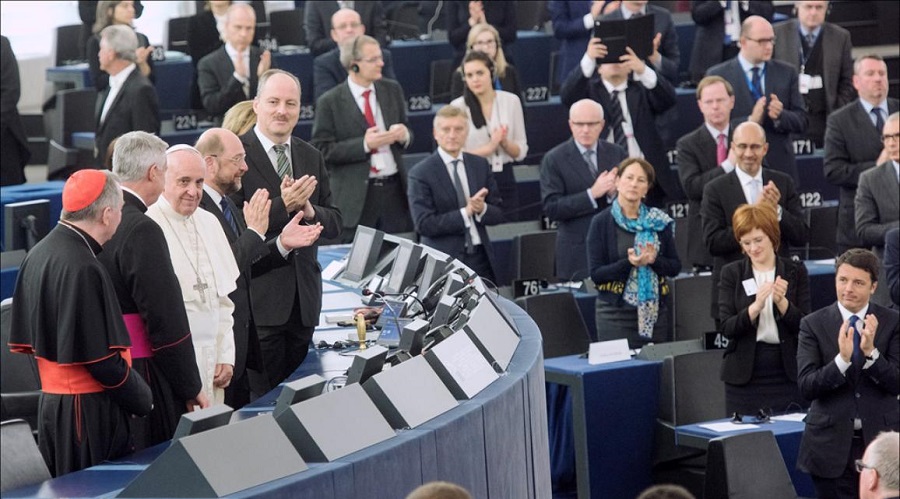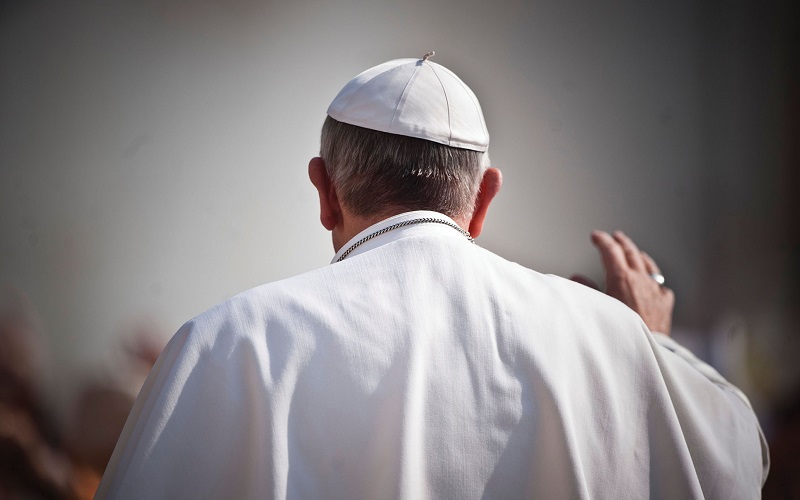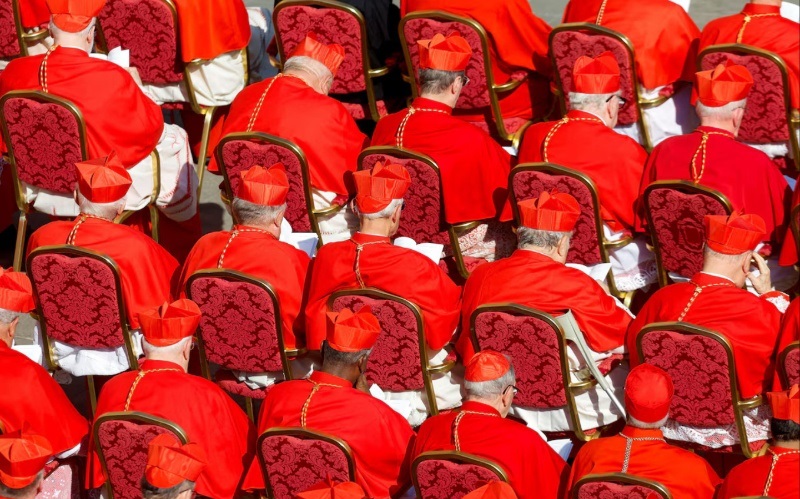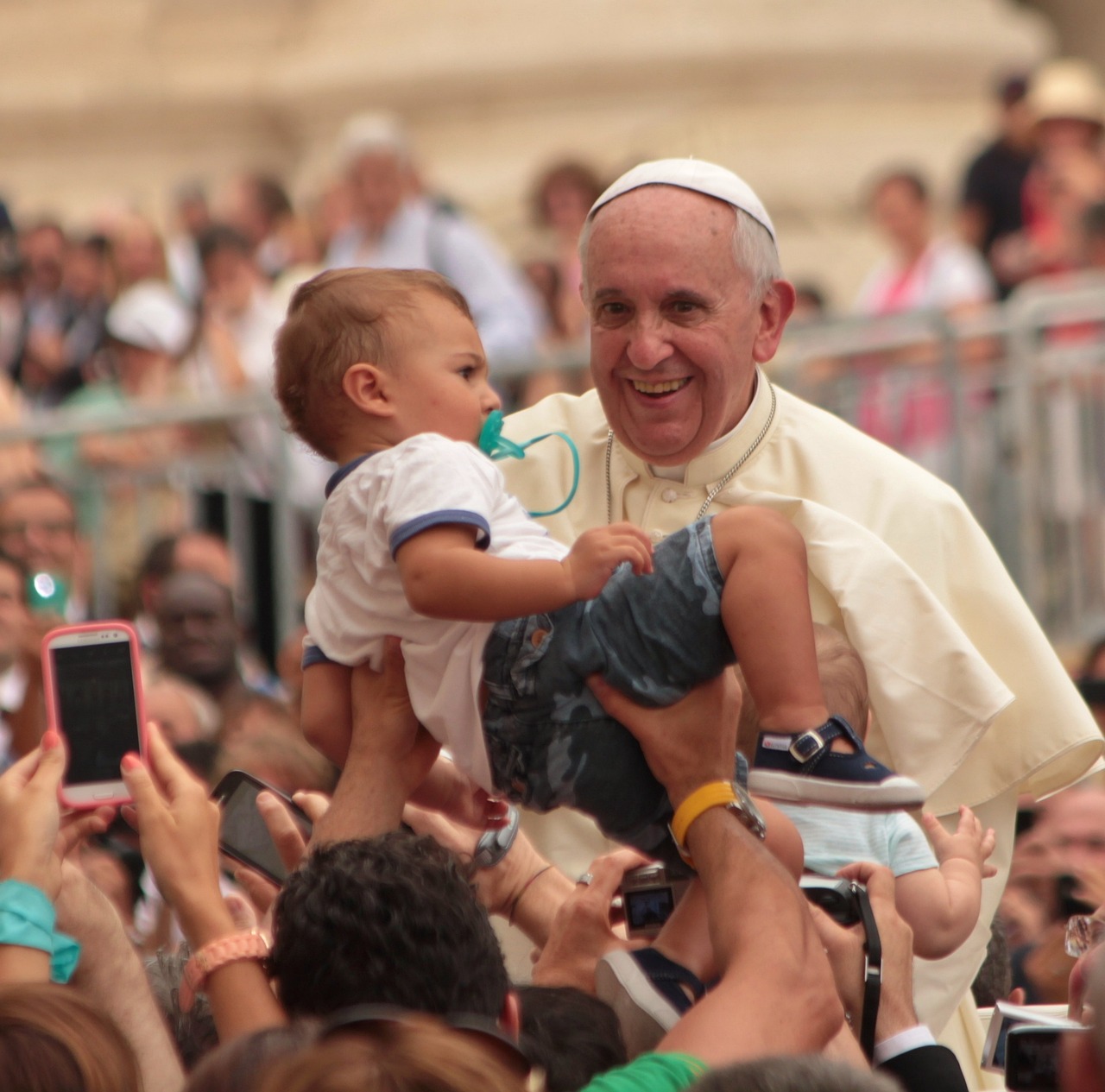
There are hidden gems in the folds of Francis’ pontificate that deserve to be brought to light, especially given the current geopolitical context. In a nutshell, we could speak of him as of a pope who has not only been a staunch defender of the democratic order, but also a conscious actor in its renewal.
Central to this renewal is the practice of synodality—the exercise of common discernment aimed at reaching shared decisions that are stronger than any partisan logic of majority rule over minorities. Thinking of democracy as the rule of the majority, which is what we have effectively arrived at, means renouncing the foundation of the democratic order as negotiation of consensus among citizens holding different opinions and world views.
Synodality and Democracy
When this happens, politics ceases to be mediation and composition of social conflict and becomes a force that imposes itself on everyone—even on those who approve its agency. When this happens, that is, when politics replaces the people, seizing for itself what does not belong to it (the will of the people), then we enter a phase in which—democratically—a civil order leaves democracy itself. As Claude Lefort has rightly pointed out, totalitarianism is not a contradiction of democracy but what only democracy can legitimize as a form of government under the rule of law.
Faced with this nihilism inherent to the democratic mechanism, Pope Francis has introduced the practice of synodality as an instituting force that seeks to renew from within the very possibility of democratic coexistence. He introduced it by asking his Church to test it and verify its effectiveness.
That is, to make it operational with respect to the constitution of the Catholic Church, thereby offering the dying democracies of our world a tool capable of deactivating from within the totalitarian outcome inherent to the contemporary democratic model.
Few have noticed this strategic effort, even among Catholics, where the debate has often become bogged down in whether or not the Church should be democratized. Synodality according to Pope Francis is much more than the question whether the Catholic Church should or shouldn’t opt for the principles of liberal democracy—even in the moment in which such democracy is exhausted and in the process of bringing about its own possible totalitarian outcome.
Reduced to a mirror-image/opposition to liberal democracy as it stands today, synodality is not recognized as the practice of a people seeking to shape a form of democracy that is not reduced to the imposition of the majority/minority mechanism. It is precisely in its attempt to implement practices that allow the parties to find themselves together in shared decisions that the instituting potential of synodality lies with respect to the necessary renewal of the contemporary democratic order.
Tying in with the thinking of Paul VI, Pope Francis was a staunch defender of the democratic order—and for this reason he pointed out its involutions. Emblematic of this is his cordial openness toward the European Union, in which he saw and sought a partner for the diplomatic work of the Holy See.
More than any other pope, Francis appreciated the democratic multilateralism and supranational solidarity of the European Union, while at the same time asking it to bring to political completion a project that had stalled at the economic and legal level. In this way, Pope Francis offered the European Union that spiritual force which the former President of the European Commission Jacques Delors considered essential for the success of the European project itself.
Pope Francis reminded the European Union that, in a world order increasingly marked by partisan interests and competition contrasts, its most original contribution laid precisely in the non-partisan humanistic values that formed its backbone.
A space where everybody can breathe
Alongside the instituting force of synodality, there is another topic of Francis’ papacy that is supportive to the democratic ideal: namely, a breadth of freedom that is entirely new to the Catholic Church in the modern era. With Pope Francis freedom of theological insight, freedom of faith’s expression and also the freedom to dialectically challenge his way of thinking became “natural” within the Catholic Church.
This is an aspect that we cannot underestimate today, especially when we look at what is happening to freedom of expression and academic freedom in what has always been considered the home of democracy, namely the United States.
Pope Francis has opened up spaces (for Catholic theology) and ecclesial processes (for the faith of all Catholic faithful) without filling them with his teaching, but entrusting them to the free imagination of theological intelligence and to the free exercise of the faith sense inherent to each Catholic faithful.
During Francis’ pontificate, there was no issue concerning the Church or the Catholic faith that has been subject to prior censorship, which would have prohibited free debate on principle. When Pope Francis asked the people to bless him on the day of his election, it was as if a window had suddenly been opened in a room where it was almost impossible to breathe—letting in a light breeze of fresh air. The feeling many had that evening was: “I finally can breathe…”.
With that request for blessing, the logic of power was reversed and the destiny of the Petrine ministry hold temporary by Francis was entrusted to the freedom of ordinary people.
Thus, suddenly, the Catholic Church became a welcoming home for that freedom which is the necessary condition and quintessence of the democratic order. In a paradoxical paradigm’s reversal, it can be said that today there is much more freedom of expression, respected by the powers that be, within the Catholic Church shaped by Francis than in many States that still claim to be democratic.
Democracy, see under: CARE—in the first person plural
Finally, we should remember Pope Francis’ efforts to build an alliance among religions (in particular with Islam—not only Arab, but also Asian) as a constructive spiritual foundation for starting a process of global fraternity among peoples and nations. In this way, he broadened the concept of citizenship, which modernity had closely linked to the idea of nation and national identity, as well as committed religions to resist the temptation to use the weakening of the democratic order to activate the supremacy of one faith or worldview over others.
With Pope Francis, it is precisely the anti-democratic concept of domination, together with its oppressive practices, that is radically criticized through a process of deconstruction that reveals its violence and arrogance.
The ecological encyclical on our common home, Laudato si’, preceded the one on fraternity as the key to a new global citizenship, Fratelli tutti: because only by deactivating the unilateral mechanisms of domination it is possible to imagine a new democracy—after the one we inherited from modernity is fading away in the dream of power of a new totalitarianism. According to Pope Francis, for democracy one must see under: CARE—in the first person plural.









